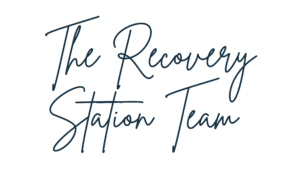As many new Allied Health students graduate from full-time study and move to the workforce, there’s a huge gap between what you know and what you don’t know.
The gap is lived experience as an Allied Health Professional.

We approached Greer, one of our long-standing and most loved OTs, to discover what gems of wisdom she could share with any new grad starting in Community Allied Health.
With over seven years of experience, Greer says these 5 lessons have made her a better clinician, colleague, and advocate for her clients.
1. Avoid prejudging a client based on their diagnosis.
All clients are unique despite their diagnosis; nothing is more important than providing patient-centred care. Understand your client’s distinct personality, capacity, resourcefulness and goals before viewing them through the prism of their diagnosis.
2. It’s a privilege to be invited into a client’s home.
Always be polite, gracious and respectful. Spending time with our clients in their homes is them inviting you into the most private parts of their lives.
Their trust has been given rather than initially earned, and in return, we provide the highest level of respect, care and therapeutic engagement. In a client’s home environment, a special rapport is established that is hard to replicate (which leads to point 3).
3. Connect. Connect. Connect.
Get to know what lights up your client. It’s important to establish rapport by creating a meaningful connection. Then, you can develop an intervention plan. I’ve witnessed so many clients achieve and exceed goals they’ve set for themselves once trust and respect have been established. Goals for your client suddenly become goals for you and your client to achieve together, making all the little wins priceless!
4. Collaborate with your team.
We regularly work independently in the community, but it is important to remind yourself that you are part of a collaborative multidisciplinary team delivering high-quality care.
Each clinician brings their own experience and expertise to the table, so it’s great to draw upon the wealth of knowledge and experience available to you. There are no dumb questions! We never stop learning, so collaborate with your teammates, be curious and always ask questions.
5. Be adaptable and resourceful.
Clients can sometimes present complex health issues that require OTs to think of creative solutions! I have learned to think outside the box, seek out or create resources, and engage with my team to find the best solution to help my clients achieve their goals.
Also, if it’s a gloriously sunny day, sometimes the best therapy is to get out in the fresh air and change the environment for yourself and your client. OT gives us the freedom to be flexible and creative; embracing this can lead to meaningful engagement and positive outcomes for our clients!
Thank you Greer
—
Recovery Station has a large and innovative team of mobile allied health professionals who empower people with disabilities, injuries, chronic conditions, psychosocial issues, and the aged to live quality lives.
Our 12-Month Graduate Program sets our Graduates up for success by providing comprehensive practical experience and supervision. They will begin their careers feeling fully equipped to undertake assessments, diagnose, report, and work with a varied caseload of clients.
Our team is excited to offer you a graduate program that values you and your career pathway. So click the link or call our People & Culture team on 0493 469 501 to learn more.
Until next time,

